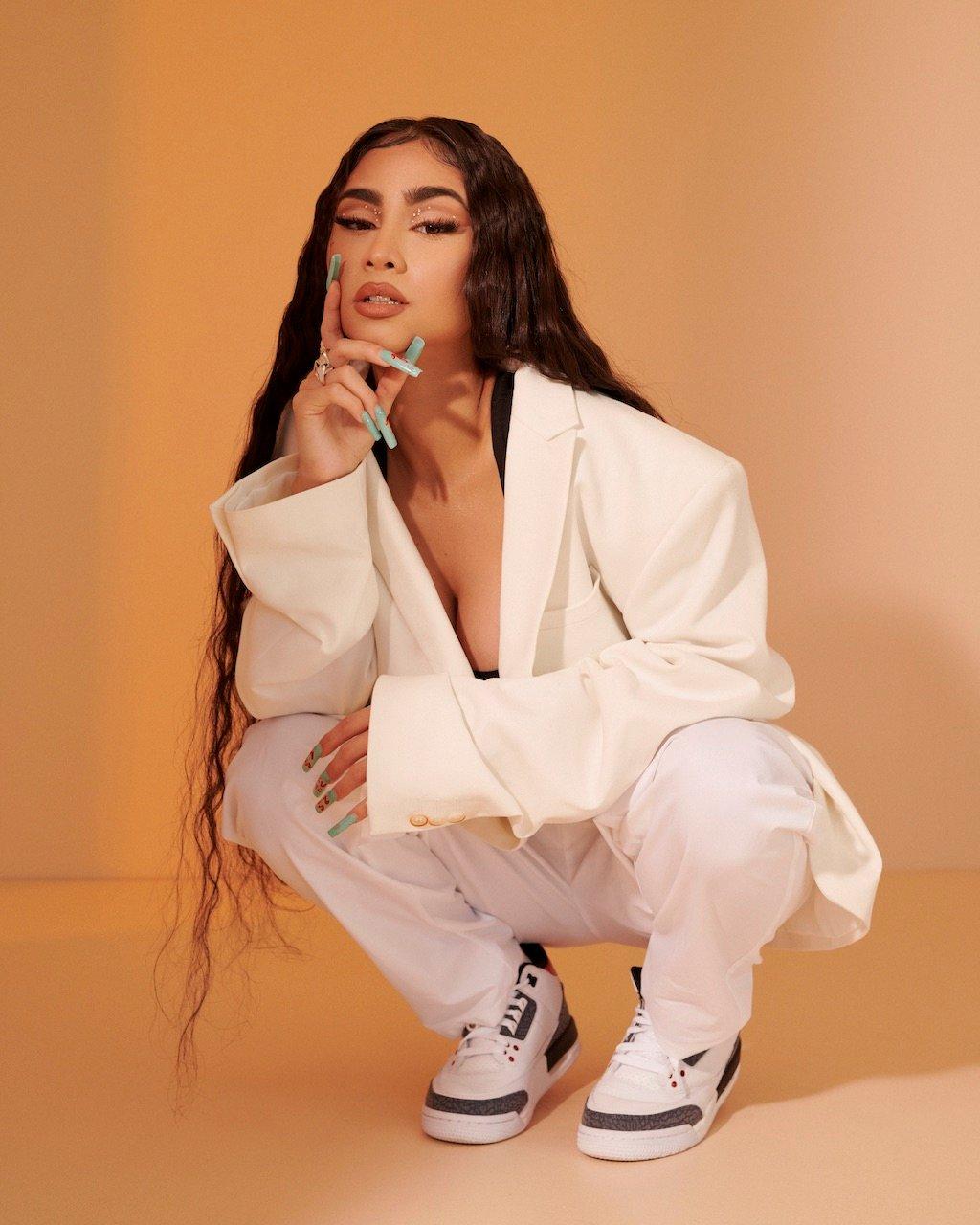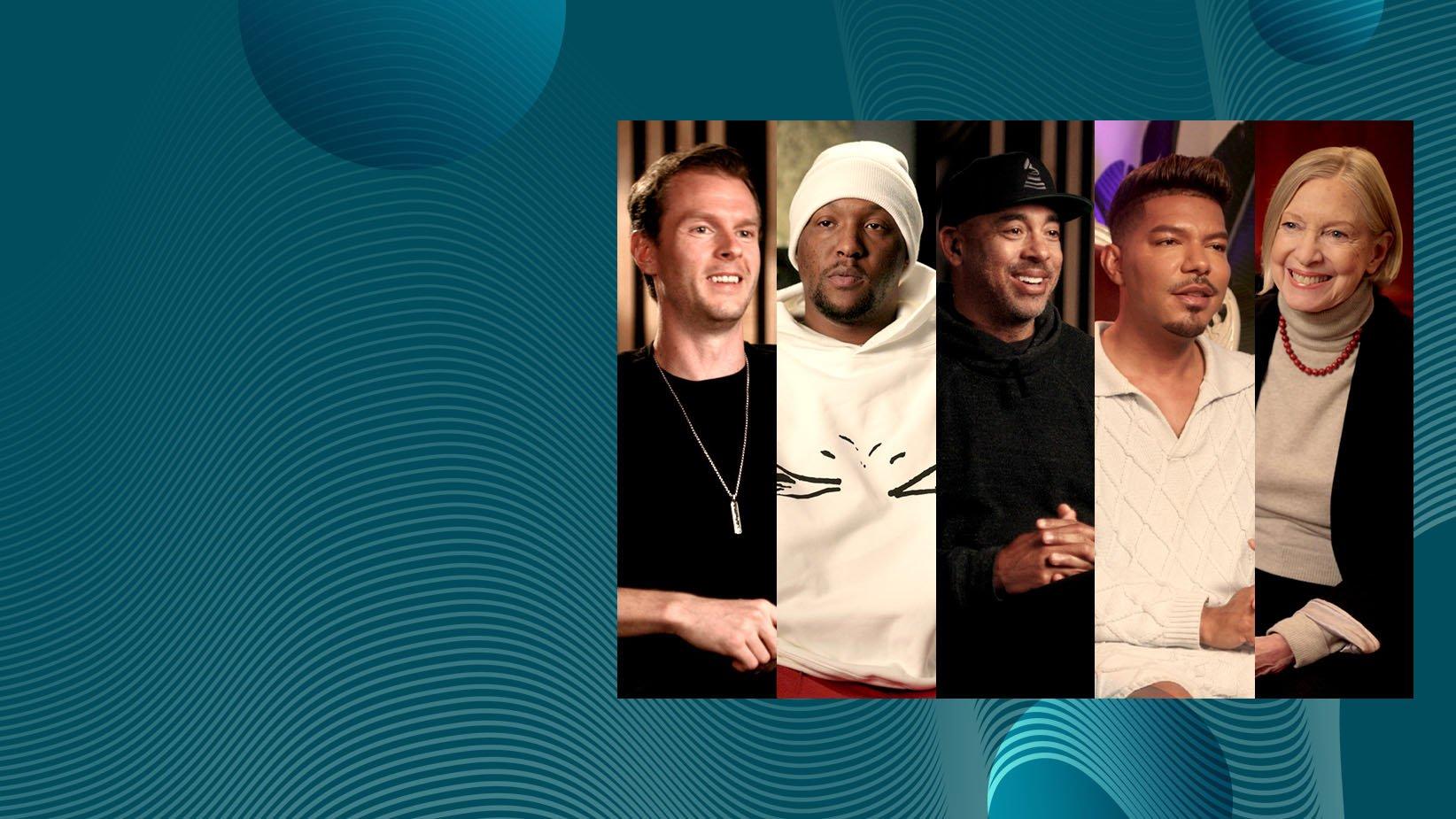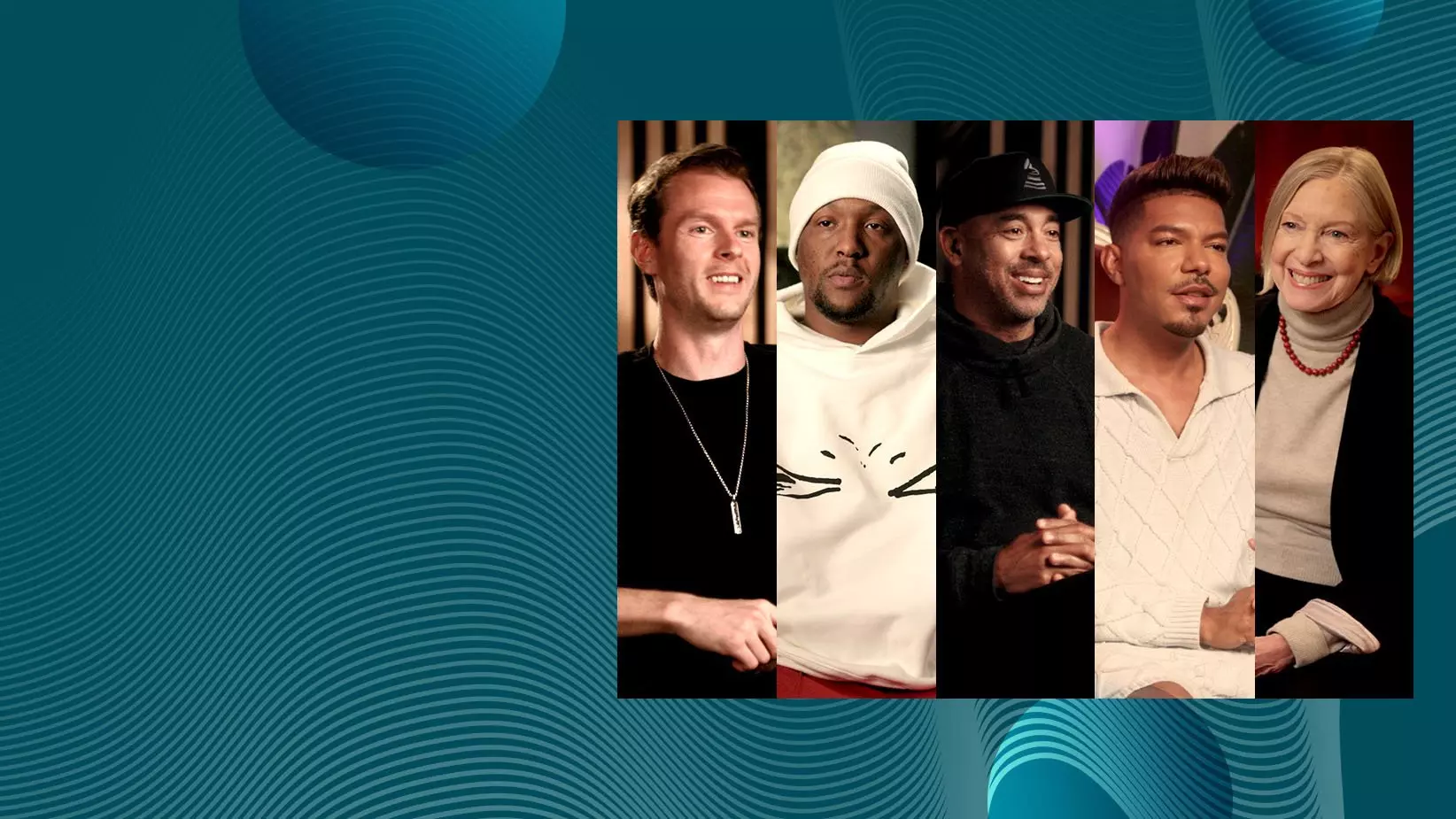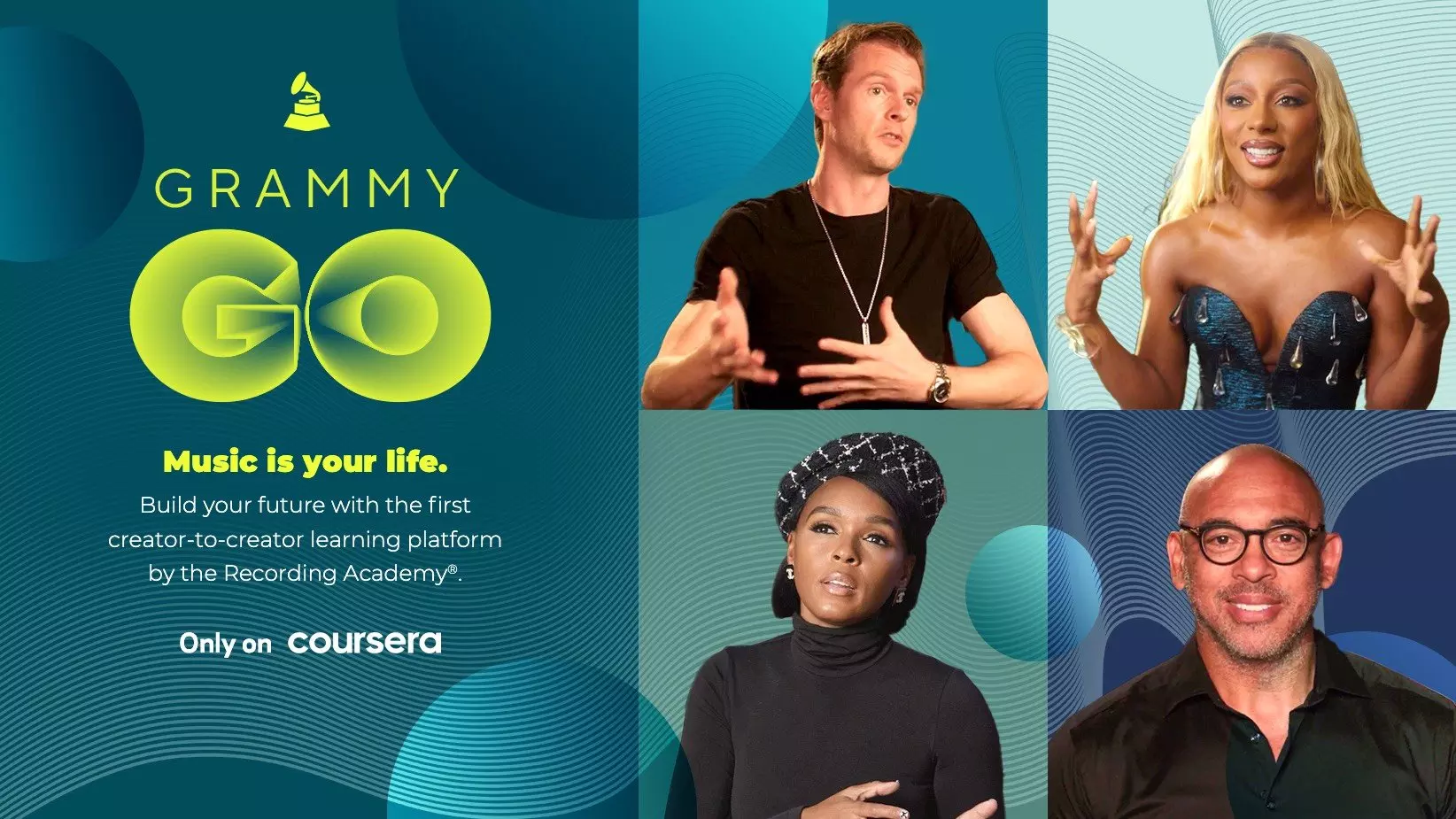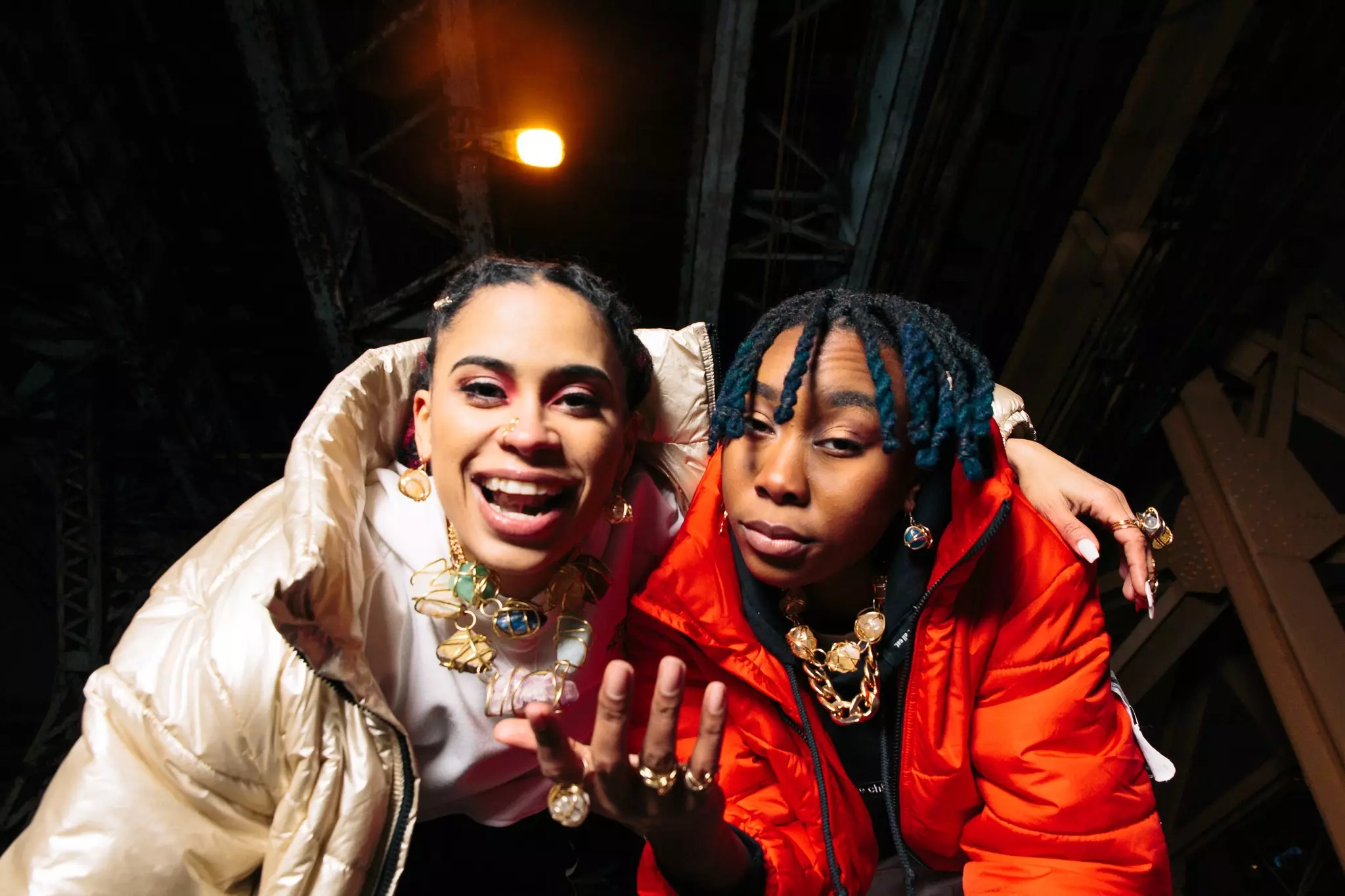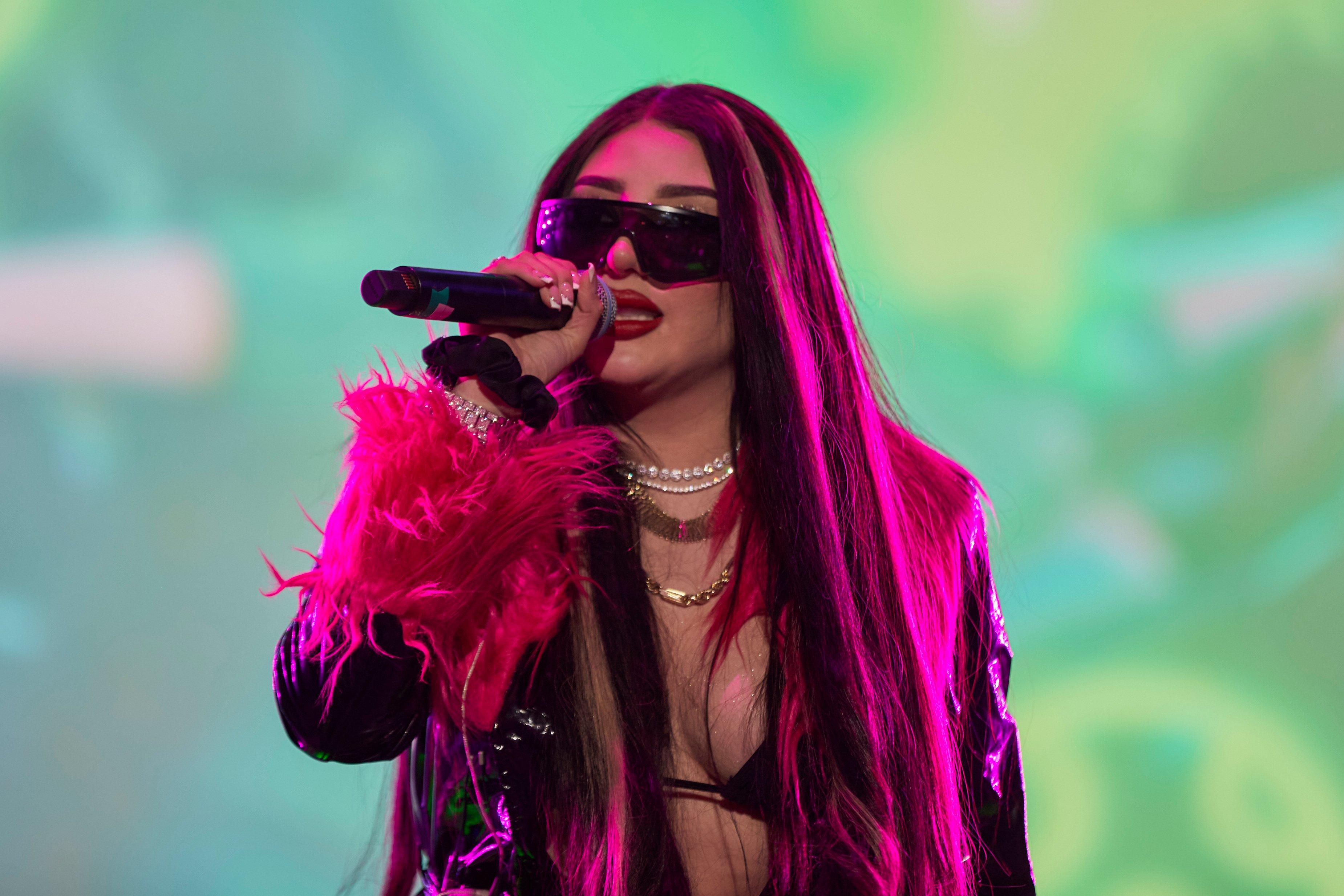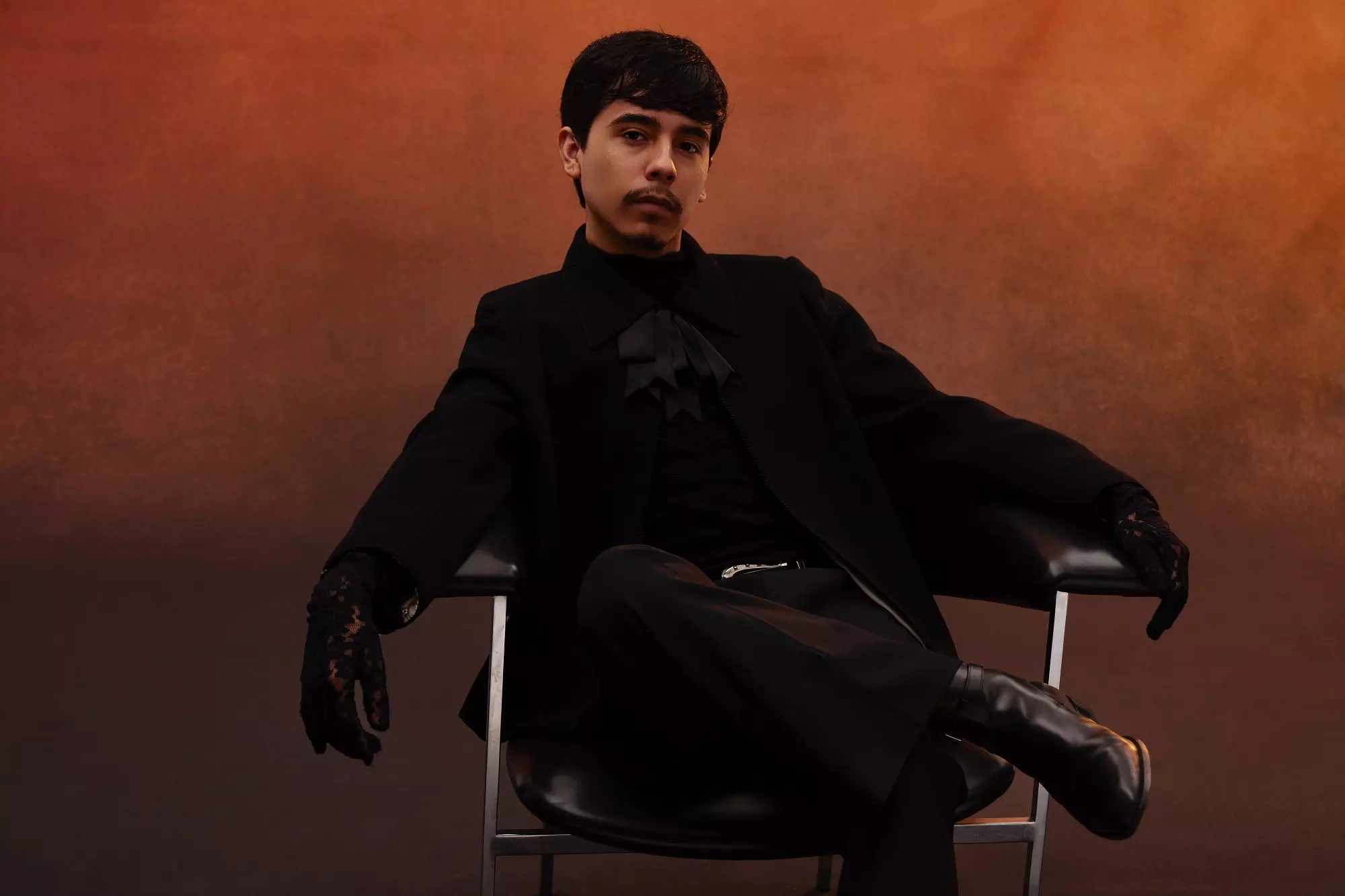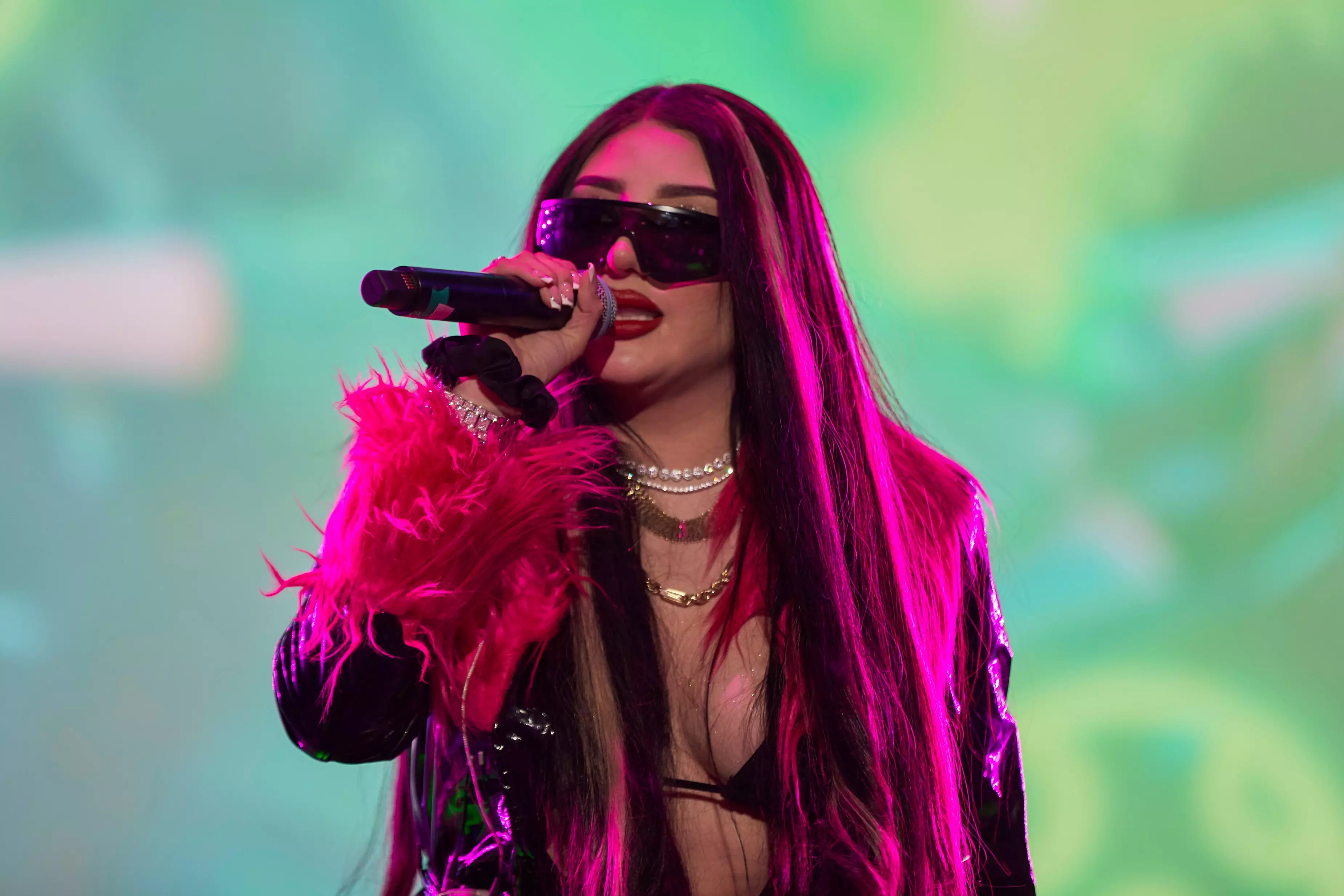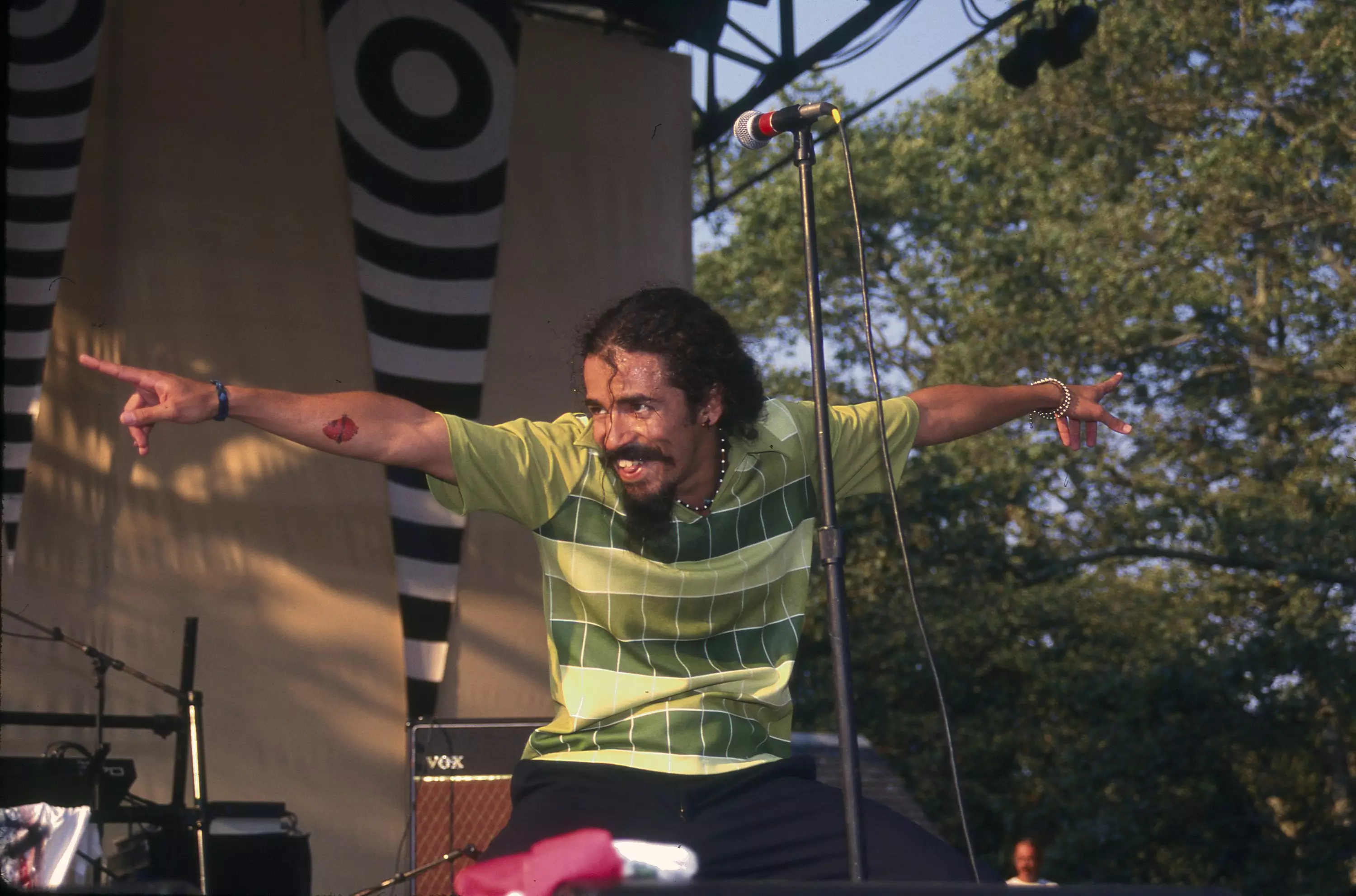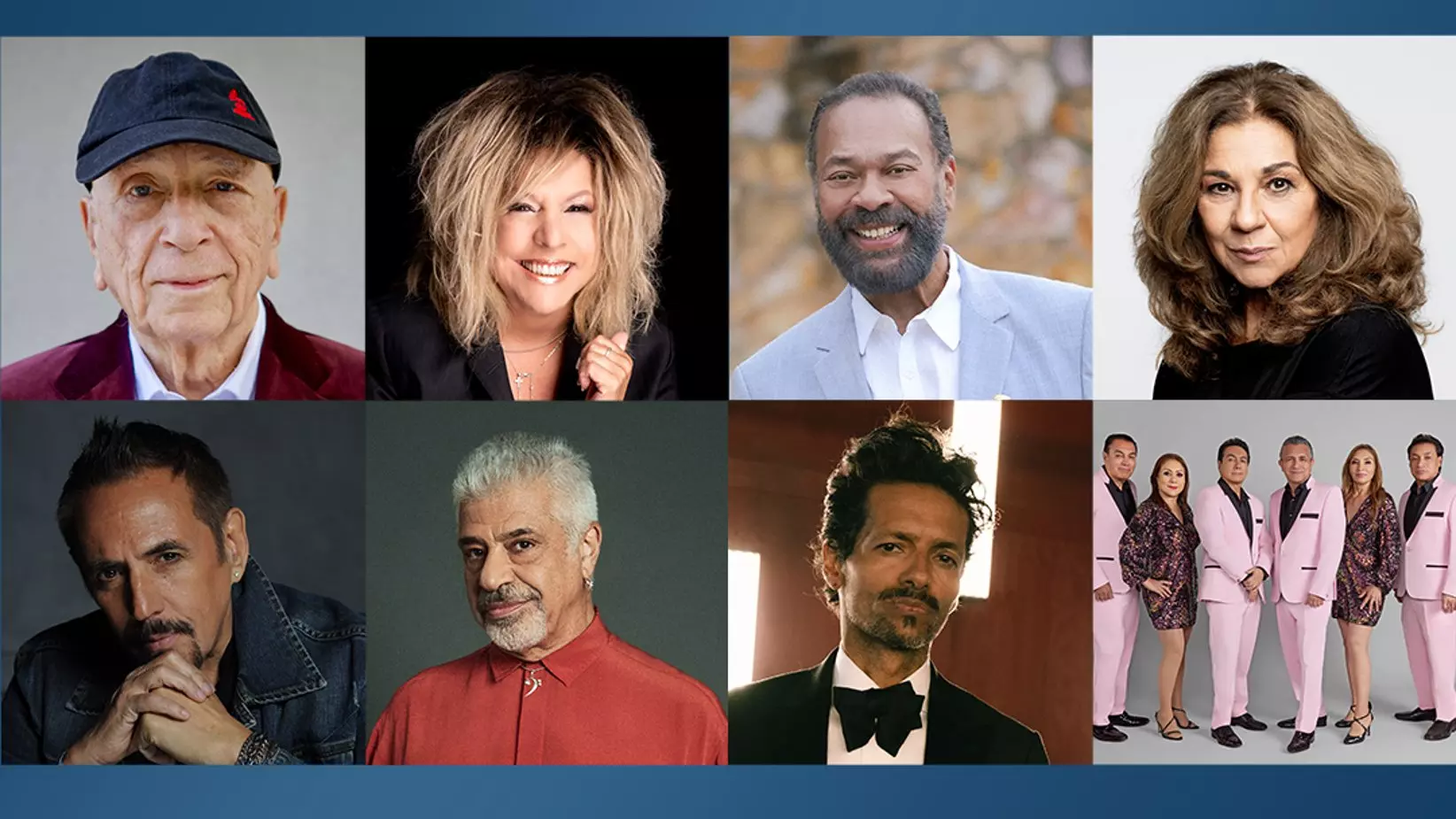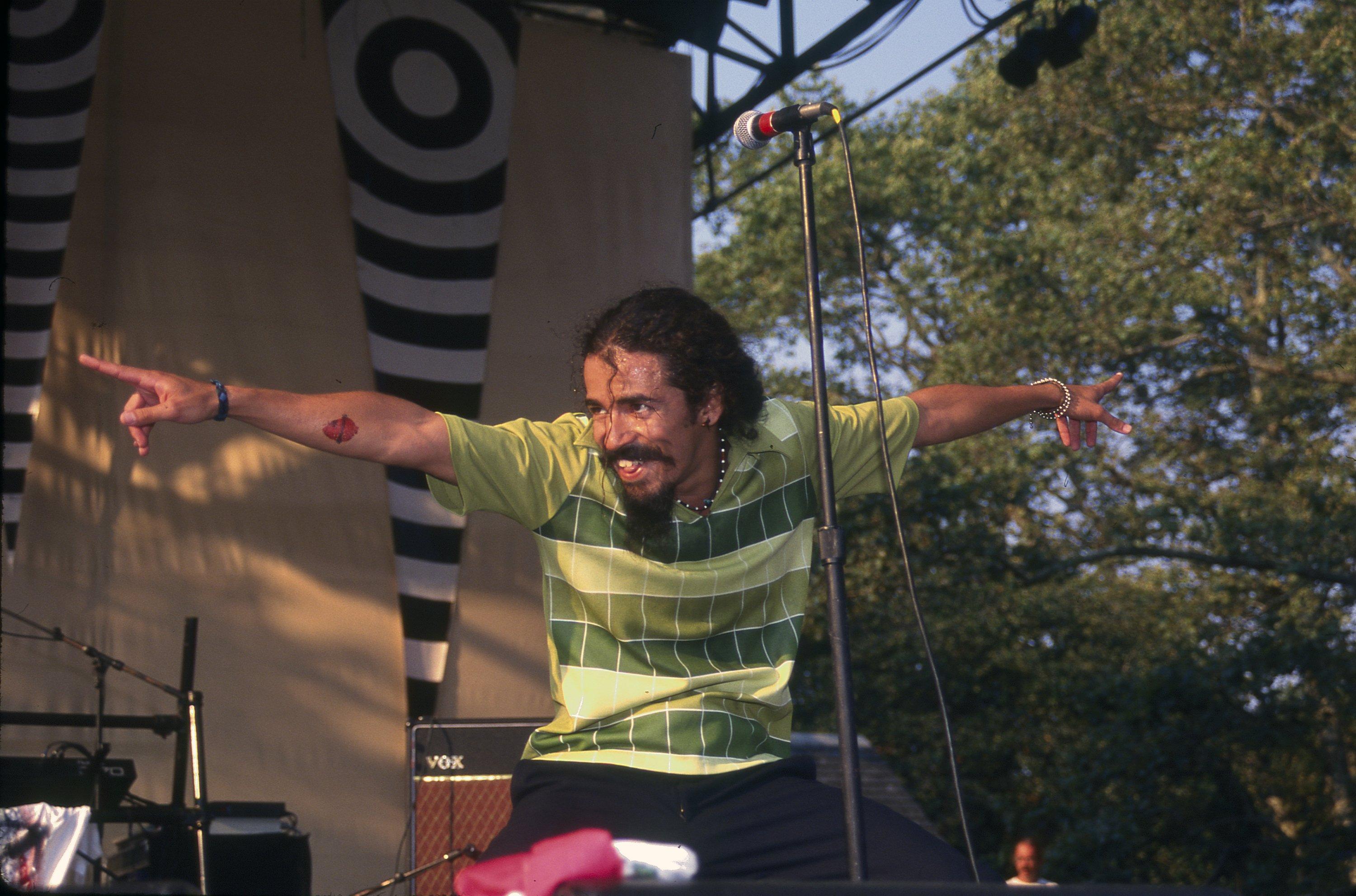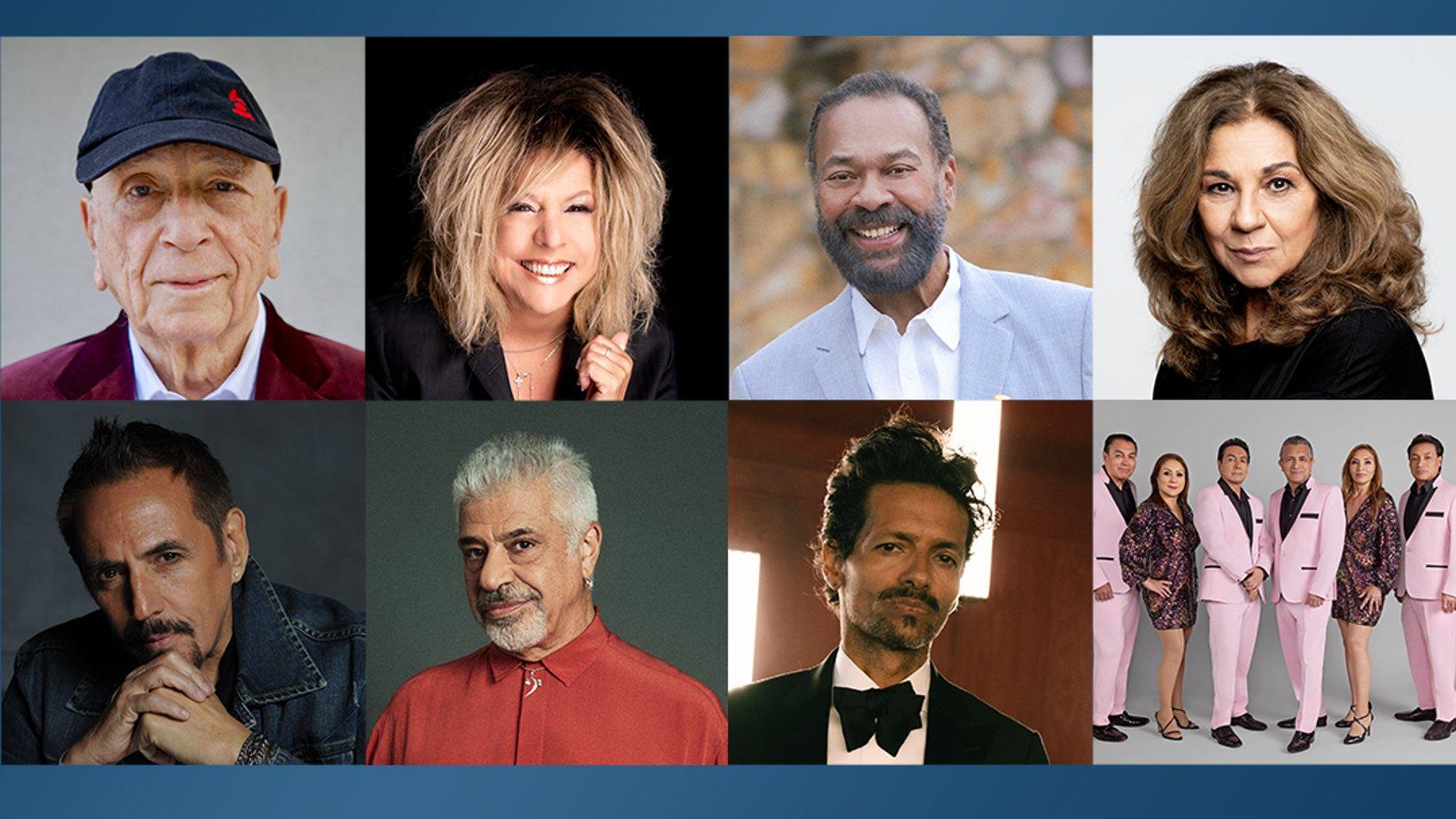If there was one word to describe both Paloma Mami and her sound, it would be "suave"—in both the English and Spanish sense. The rising singer/songwriter is confident and bold—traits she has on full display all over her Instagram—but she’s also smooth and tender, something evident in her musical repertoire; In conversation with her, it is these characteristics that shine the most. A constant across her music is her velvety voice which imbues each piece with unique softness—regardless of subject matter. (She can switch from self-love anthems like
"Mami" to trap-infused ballads about heartbreak like “Fingías'' with ease.) Once you hear Paloma’s honeyed murmurs, it’s impossible to mistake her sound.
<style>.embed-container { position: relative; padding-bottom: 56.25%; height: 0; overflow: hidden; max-width: 100%; } .embed-container iframe, .embed-container object, .embed-container embed { position: absolute; top: 0; left: 0; width: 100%; height: 100%; }</style><div class='embed-container'><iframe src='https://www.youtube.com/embed/lHPzUEuhB6k' frameborder='0' allowfullscreen></iframe></div>
Born Paloma Rocío Castillo Astorga, the Chilean-American starlet chose her stage moniker when she was just getting started in the music industry and has since worn the latter part of her name as a breastplate. (Mami, an endearing term for mom in Spanish, has been popularized and most used as a slang term to compliment women.) "My name gives me a different type of personality, it makes me come out of my shell," the singer told Flaunt back in 2019. "My name turns me [into] a different person, an alter ego type thing. An empowered woman, not afraid of anything."
It might have started as a façade, but she’s undoubtedly the mami in the Latin music industry now. The New York City-born, Santiago-based artist has been making ripples in the scene since her breakout single "Not Steady" was released in 2018. She became an instant sensation in her Chilean home turf thanks to its trappy hi-hat rhythms and her lulling vocals. As told to Genius, the song was the first she ever wrote and, with it, she became the first Chilean act to be signed under Sony. With each of her releases since then, those ripples have only expanded. In 2019, she returned with steady hits like "Don’t Talk About Me," "Fingías," and "No Te Debí Besar" alongside Spanish rapper C. Tangana. In 2020, she started to give her audience a taste of what was to come with songs like "For Ya" and "Goteo," a braggadocious track about her drip. Now, her debut album, Sueños de Dalí, is throwing listeners into the deep end.
Inspired thematically and visually by the surrealist Spanish painter Salvador Dalí, Sueños de Dalí features 11 tracks that mix R&B, hip-hop and pop. The project is also laced with more than hints of reggaeton and even includes lullabies from Chilean folklore—as Latin music continues grabbing attention globally with its diversity of sounds, Paloma is seen as a part of its promising future. Putting songwriting at the forefront, she approaches music with artistry at heart, and it transcends. Equal parts personal and boppy, if her teenage offerings presented her to the world, Sueños de Dalí is her reintroduction—one with even more poise and calmness. "I feel like since the beginning of my career people just have not understood me," Paloma tells GRAMMY.com. "I don't think people ever will understand me, but hopefully more and more people will accept that."
GRAMMY.com caught up with Paloma Mami to discuss Sueños de Dalí, her idiosyncrasies as a Chilean-American and breaking into the U.S.
Before we get into the album, can you tell us a bit about growing up in New York and moving back to Chile in your teens? Why did you decide to move back? You live in Santiago now, right?
I do live in Santiago but I'm currently in Puerto Rico. I think it was four or five years ago that my mom decided to move to Chile because I was rebelling, I guess you could say. We were living in New York and I stopped going to school. I just was not being obedient to her and she couldn't control me. It was just my mom and my sister and me. She was working every single day, and had no idea that I was skipping school. When she found out, she was so mad and was like, "Your punishment is you're going to have to go to Chile. That way I can look after you properly."
Did you see it as a punishment when it happened?
Oh yeah. When it first happened, I did. I was so upset, obviously. I mean, New York is like the best place ever. That's where I grew up. All my friends were. Everything that I loved was in New York. It was really sad for me to leave. I loved Chile because my family was there, but other than that I didn't like anything else from it. When I moved there and I think it was the first month where I just was like, "wow, it's actually really great here, I love it."
So, it was a blessing in disguise. It worked out in the end.
Yeah, exactly. It really was.
<style>.embed-container { position: relative; padding-bottom: 56.25%; height: 0; overflow: hidden; max-width: 100%; } .embed-container iframe, .embed-container object, .embed-container embed { position: absolute; top: 0; left: 0; width: 100%; height: 100%; }</style><div class='embed-container'><iframe src='https://www.youtube.com/embed/4cRMn1iecSU' frameborder='0' allowfullscreen></iframe></div>
Sueños de Dalí is your first album and you likened the release to a timeless painting. Why a Dalí painting? Why a surrealist painting?
Well, Dalí for me was always a huge inspiration since I was little. I would always go to his exhibitions whenever I could in New York. I always felt [his work] looked [like] a dream. There were things [in a painting] that you wouldn't expect to see together. I love the thought of that. I love that it was just so, so crazy and just so different from everything else that I had seen. The fact that he had so much controversy with it, too; that so many people just didn't know what the hell he was talking about, what his paintings meant, and had so many people confused, I love that.
I felt it was a great way to compare my work with Dalí's because I feel like since the beginning of my career people just have not understood me. I don't think people ever will understand me, but hopefully, more and more people accept that.
So is it a bad thing if people don't understand you?
No, I see that as a positive thing. It used to not be. I don't know if it ever happens to you, but you know when you love something and then later in life you realize why you love it so much? It kind of was like that with me and Salvador Dalí.
Since the beginning, I always loved his [uniqueness] and how weird he was to everybody. In the music industry and my country and everything, I'm looked at like that sometimes. And I get that as a compliment. People told me that this album of mine was weird and different, I was like, "Thank you so much." And I didn't even know if they were saying it [as] an insult or not.
<style>.embed-container { position: relative; padding-bottom: 56.25%; height: 0; overflow: hidden; max-width: 100%; } .embed-container iframe, .embed-container object, .embed-container embed { position: absolute; top: 0; left: 0; width: 100%; height: 100%; }</style><div class='embed-container'><iframe src='https://www.youtube.com/embed/piG9_LCazpQ' frameborder='0' allowfullscreen></iframe></div>
The full album just came out, but it includes songs like "Goteo," "Mami" and "For Ya," which you released in 2020. How long have you been working on the album? Did you go back and forth on your selection of songs or did you have a picture in mind?
It has been two years in the making, technically. Everything that we chose for the album was just natural. I would finish one song in the studio and I would be like, "Oh yeah, it was cool." But I didn't put in the album. When I would put songs in the album, I knew exactly which ones, I knew at that moment, I was like, "Yeah, this one's going in the album for sure. Like, I have a good feeling from it."
You mentioned that, for example, "Mami," you re-recorded a bunch of times. Did you feel any pressure with that one in particular because it’s an homage to Ivy Queen? Were there particular songs where you felt you had to really polish them before putting them in the album?
Well, actually I polished "Mami" so much just because I felt it was such an important song to me. I wanted it to express everything that I've always wanted to say. And I have so much to say sometimes that I had to redo it so many times. I was like, "Damn, but I wanted to mention this. So, let me change this line and put this instead." That's why I re-did it so much. The Ivy Queen idea was literally one of the last versions. I had thought of that in one of the last versions that we re-did again.
I guess you could say that you blew up almost immediately when you put out "Not Steady" on the Latin market, but you've been breaking into the U.S. market with your newest releases. Do you feel there any difference between the two markets? Have you dealt with any obstacles?
I feel there always is a difference between the two, just in general. The U.S. market is kind of just now taking in Latin. They're now accepting it a lot more, which is amazing. I have been around for a while in the U.S. market, but right now it's really been really starting to take off. And I am seeing the changes. The difference in radio play five years ago in the U.S. market is crazy. Now you hear so many more Spanish songs playing. That's the [main] thing.
They're starting to catch up. And I'm excited for that because I feel that, for me, that's always been my goal with my music – to be able to transcend between the two markets and not have a specific [label.] Things like, "Oh, she's a Latin artist." I want to be known as just an artist that makes Spanish and English music.
<style>.embed-container { position: relative; padding-bottom: 56.25%; height: 0; overflow: hidden; max-width: 100%; } .embed-container iframe, .embed-container object, .embed-container embed { position: absolute; top: 0; left: 0; width: 100%; height: 100%; }</style><div class='embed-container'><iframe src='https://www.youtube.com/embed/Le-liq-wtZs' frameborder='0' allowfullscreen></iframe></div>
You've talked about this here, but as a Chilean-American, you've addressed this feeling of alienation from both sides at some points, and you mention it on "Que Wea," when you sing, "Es chilena solo cuando le conviene no más." Did you ever feel you had to change yourself to adjust and cater to the different audiences at all? How did you overcome that and learned to embrace your identity?
Honestly, yes. I felt like that in the beginning when I first started out being in the public eye immediately in Chile. It was on TV and on the radio, and it made me realize that no matter what, people definitely wanted me to change, people wanted me to act a certain way. "Oh, she's too this, she's too that." I felt like, "Wow, maybe I have to change. I guess people don't like me acting [like] this. I guess people don't like it when I mix English into my Spanish sentences."
People called me stupid for that, or people called me gringa – there's always negative things that come with it. In the beginning and I was like, "I guess I'm going to have to change my whole way, how I act, how I talk, my jokes. People don't understand me." And then I realized like, you know what? At the end of the day, I honestly shouldn't care this much. Why does it matter what these people I've never met before in my life think about me? It does not matter at all. It took me a while to figure it out, but once I did, I was like, "whatever, I don't care at all."
"Que Wea" struck me as one of the most personal ones on the album. Do you have a favorite song or a song that you feel particularly connected to?
I have a lot that I feel are super personal to me. I feel like there’s a couple that stand out. "Dreams" is one of my favorites, and "Mi Palomita" as well. I think those two are my absolute favorites because, for example, "Mi Palomita" is a song that my grandpa always sang to me. I grew up listening to it my whole entire life and it’s extremely special for me. "Dreams" as well is a touching song for me.
I know you asked on social media, but do you feel one of these will be the one to get a video next?
Well, I have videos for every single song on the album. Some are more for me, and some have a bigger production. Some I wanted to give it a kind of natural feel and kind of homey vibe with it. And "Dreams" is one of those. I feel the video really embodied everything that I was feeling and it's super mystical. I think a lot of people are going to like it.
So, you’re going for the full visual album.
Yeah.
Production-wise, you've worked with GRAMMY-nominated producers like Hit-Boy and El Guincho. How do you choose who you want to work with?
Honestly, I've always been super metida en todo, [in everything]. I love seeing every producer. Whenever I like a song, I like to see who produced it. I'm always super interested in that because I like to work with people that I've never worked with, I've never heard of before, and people that have [a] sound just catches my attention. All the producers on my album honestly did that for me. All the producers that I’ve worked with, I knew of them before and I wanted to work with them and I'm still happy that I got to. Hit-boy is one of the producers that I've always wanted to work with, and I was so excited when I got to work with him. El Guincho también,[too]. I loved his work with Rosalía. He has been in the industry for so long. I love his music.
<style>.embed-container { position: relative; padding-bottom: 56.25%; height: 0; overflow: hidden; max-width: 100%; } .embed-container iframe, .embed-container object, .embed-container embed { position: absolute; top: 0; left: 0; width: 100%; height: 100%; }</style><div class='embed-container'><iframe src='https://www.youtube.com/embed/PYi2Ef7b3Gk' frameborder='0' allowfullscreen></iframe></div>
You've said that performing is one of the aspects of being an artist that you enjoy most and that you obviously miss most because we're in a pandemic. Do you have any fun interactions planned, even if they're virtual, for 2021?
I'm trying to plan a live show! I'm excited for that. Honestly, I can't wait to sing these live because I feel that's where you really get to catch a vibe with every single song. I've been singing them in my shower and every day, and I'm so tired of doing that. So, I want to finally grab a microphone and be able to sing them and have people see me and hear me that.
You have 1 billion streams global, 2 million YouTube followers, you are the first Chilean to be signed to Sony, and the first Latina to make Billboard’s 21 Under 21 list… those are a lot of feats. Do any of these put any pressure on you? Do you pay attention to those numbers and titles at all?
Honestly, I do pay attention to the titles because they're all accomplishments to me. They're all blessings. I'm so blessed to have everything that happened to me the way that it did in my career. I feel it was just waiting for me to put the pieces in the puzzle and everything just took off like that. I'm so blessed that it happened the way it did. I've never felt any type of pressure or anything. It's always [about] accomplishments and hoping that I'm going to get more and that I'm going to break more records, and that I'm going to put Chile on the map even more.
You said you were in Puerto Rico right now. Are you working on music?
Actually, I am. I'm always working on music. Right now, I'm going to a studio in a couple of days, so I'm going to be excited about that. I was in Miami two weeks ago, and I was also in the studio. I'm always making music, I love what I do so whenever I get the chance to see a studio or go to a studio. And besides that, I'm always just making music in my head.
So, aside from that, how have you been spending your days? What are you looking forward to non-music-wise in 2021?
I'm looking forward to clothing. I'm super into fashion and I have something in the works as well...
Big Voices, Ballads and Blockbuster Hits: How 1996 Became The Year Of The Pop Diva

